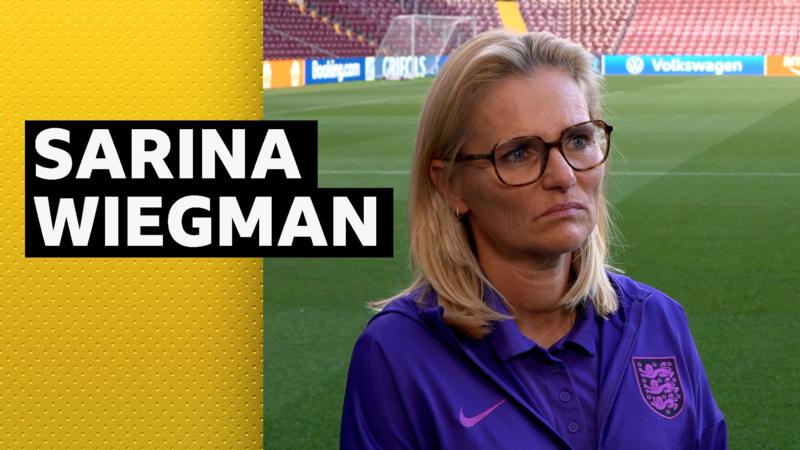Carter Faces Shocking Racist Abuse: Outrage Ensues



In a candid exchange with the BBC's esteemed sports editor, Dan Roan, England women's football manager Sarina Wiegman voiced her disgust at the racial abuse targeted at defender Jess Carter, labelling it as "disgusting and disgraceful." This strong condemnation shines a spotlight on the persistent issues of racism in sports and the impact it has on players, urging for a renewed commitment to eradicating such vile behavior from the game.
Jess Carter, who plays her club football for Chelsea, had been subjected to discriminatory messages online following a match. The young defender's experience is a jarring reminder of the challenges that athletes of color face, not just on the field but also within the broader social media landscape where anonymity often emboldens individuals to spew hatred.
Sarina Wiegman's response reflects not just personal outrage but also the collective intolerance for racism within the England women's team setup. It also illustrates how leadership can play a pivotal role in championing the fight against discrimination in sport. Under Wiegman's stewardship, the atmosphere within the squad is one of inclusivity and respect, qualities essential for both personal and team success.
Racism in football is a deeply ingrained issue that governing bodies, leagues, clubs, and individuals have been combating for years. The rise of social media has unfortunately provided a new avenue for racists to target players, compounding the problem with its global reach and often untraceable anonymity. Campaigns like Kick It Out and FIFA's Say No To Racism have been at the forefront in the fight against this scourge, but incidents like the one involving Jess Carter highlight there is still a significant journey ahead.
Wiegman’s and the team's stand against racism also underscores the vital role of team management and coaches in protecting players and fostering an environment where they feel safe and supported. By publicly condemning the abuse, Wiegman not only backs her player but also sends a powerful message that racism in any form will not be tolerated within her squad.
This incident, though unfortunate, offers an essential moment for reflection and action within the football community and the wider sporting world. The FA has a protocol in place for dealing with such incidents, which includes reporting the abuse to the platforms on which they occurred while also providing support for the player affected. The governing body, along with clubs and the league, needs to maintain stringent measures to ensure that racism does not find a place anywhere in football.
Moreover, education plays a crucial role in the fight against racism. Initiatives to educate fans and the broader public about the impact of racial abuse on individuals and the broader society are critical. Workshops, fan engagement sessions, and collaboration with schools and community groups can extend the message beyond the terraces into the community.
Looking forward, the commitment from individuals such as Sarina Wiegman to address and highlight these issues whenever they arise is fundamental. Accountability from everyone involved in the sport, from the fans in the stands through to the players, managers, and the governing bodies, is required to create permanent change.
Through united efforts and continual conversation, the goal will remain to not only mitigate the occurrence of racial abuse in football but to kick it out entirely, ensuring the sport remains true to its ideals of respect, enjoyment, and inclusivity. Jess Carter's experience is a call to action for all those involved in the sport to step up, speak out, and ensure that football is a game for everyone, free from discrimination and prejudice.